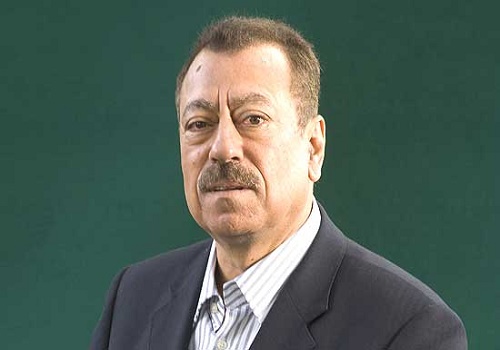No Quick Fix in Yemen
By Abdel Bari Atwan
As a deadly cholera epidemic compounds the humanitarian catastrophe caused by the Saudi-led war on Yemen, the military and political situation in the country is in stalemate. Other than the occasional Houthi missile strike into Saudi territory and sporadic fighting on the Saudi-Yemen border that has become routine, the battlefronts seem quieter these days than they have ever been, while the political/negotiations process is in a state of paralysis.
The only certainty is that the Saudi-led ‘Operation Decisive Storm’ coalition, whose warplanes continue to carry out virtually indiscriminate airstrikes, has failed dismally to take the upper hand in the war it launched two and a half years ago. The campaign has become a financial, human and political burden on this alliance and its member-states as well as a disaster for Yemen and its people.
Reports surfaced in the US this week that the finishing touches are being put on a deal that is being secretly negotiated, at Saudi Arabia’s instigation, aimed at bringing the war to an end within the next few months. According to the website Just Security, Saudi and UAE officials met with representatives of the two wings of Yemen’s former ruling General People’s Congress (GPC) party: the faction supporting the Saudi-backed president-in-exile, Abed Rabbo Mansour Hadi, and that led by veteran former president Ali Abdallah Saleh. A ‘grand bargain’ was reportedly agreed under which Khaled Bahhah — Hadi’s sacked former deputy who is favoured by the UAE – would become prime minister for an interim period before assuming the presidency, while Saleh’s son Ahmad would be appointed defence minister as part of a new coalition.
A leading GPC figure contacted by Raialyoum denied that any such encounter had taken place, stressing that Saleh’s faction would never enter into talks on a political deal without the participation of its Houthi allies. He suggested that these reports were misinformation aimed at sowing suspicion between the two sides. The official conceded that there had been meetings between GPC and UAE representatives. But he said that these had not resulted in any agreements, and insisted that there had been no meetings with the Saudis.
UN representative Ismail Ould Cheikh Ahmed has returned to the region for a brief visit after a prolonged absence due to the failure of his mediation efforts and demands by some of the parties that he be replaced. The Houthis, in particular, have accused him of being biased toward the Saudi side and placed a veto on any further meetings with him. That means the UN-sponsored peace process has expired, or is at best in intensive care awaiting resuscitation.
The more significant new development is Hadi’s current attempt to convene the Yemeni parliament in the southern city of Aden, which is under the control of forces aligned with the Saudis and/or Emiratis. He has been engaged in intensive contacts with MPs with the aim of securing a quorum and ensuring that enough members attend to make the proposed session legal. But his efforts have not been successful so far, with many members refusing to take part despite, according to Yemeni sources, being offered substantial financial inducements.
The Saudi leadership for its part has begun reaching out to Shia communal and political leaders in Iraq, who until recently were demonized by the kingdom and routinely vilified and denounced by its media. In doing so, it apparently seeks to set the stage for opening channels of communication with the Houthis to find a way of extricating itself from the war in Yemen. Its intervention has gone disastrously wrong and it seeks a deal that would provide it with a face-saving way out. But it refuses to acknowledge that it started the war, assume responsibility for the material and human losses it caused, or provide the financial compensation that is due.
We doubt that a solution to the Yemeni crisis is near, either via the UN mediator or through secret talks. The Houthis will continue launching cross-border missile strikes and incursions, while the Saudis and their allies see the bill for their misadventure continuing to mount.

